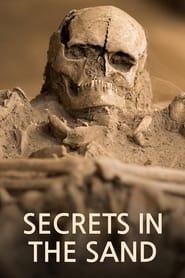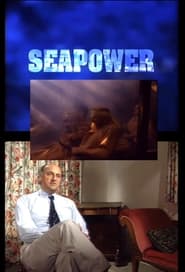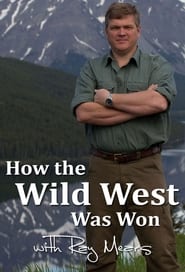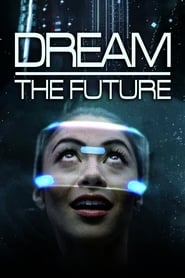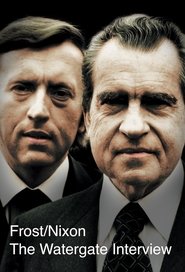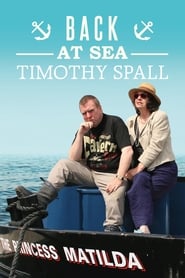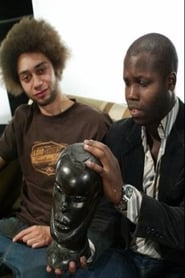Documentary TV Series - Page 267
-
The People's Vet
2018
The People's Vet
2018
Behind-the-scenes series following the staff and patients of the UK's leading veterinary charity. -
Wild Yellowstone
2015
Wild Yellowstone
2015
star 7.7Yellowstone challenges every animal that lives in this Rocky Mountain wilderness; in summer it pitches them into battle against one another for food, territories and mates, in winter it forces them into a struggle for survival. -
Secrets in the Sand
2023
Secrets in the Sand
2023
star 8In Secrets in the Sand, experts uncover four global stories of "extraordinary curiosities that were once concealed in the deserts of the planet." -
Karen Carney's Leaders of the Pack
2023
star 7Karen Carney shines a light on the achievements of female footballers on and off the pitch. -
Talking Film
1978
Talking Film
1978
Movie expert Elwy Yost interviews industry people on both sides of the camera, encouraging them to talk about themselves, the state of their art, and its history. The series features many famous film personalities who, along with producers, directors, designers, screenwriters, and critics, offer candid insights into the making of motion pictures. -
Seapower
2000
Seapower
2000
Seapower is the fascinating saga of the development of battleships from the days of Ancient Greece to the twenty first century. -
Live Aid at 40: When Rock ’n’ Roll Took on the World
2025
star 6.9A look at the legacy of Band Aid, Live Aid and Live 8 in reshaping global charity and politics. Featuring interviews with Bob Geldof, Bono, Sting, and African and western leaders of the time. -
Secrets of the Sun with Dara Ó Briain
2024
Dara investigates the amazing star at the centre of our solar system. -
Tony Robinson's History of Britain
2020
star 3.5Taking a 'bottom-up' view of history by exploring everyday lives of the nations ordinary people. -
Geist & Gehirn
2004
Geist & Gehirn
2004
-
RapCaviar Presents
2023
RapCaviar Presents
2023
star 7.5Based on the influential 2015 Spotify playlist, this series is a deep dive into current events that untangles important subjects and offers a view of the world from an artist’s perspective. -
环环环环环
2021
环环环环环
2021
-
How the Wild West was Won with Ray Mears
2016
Bushcraft expert and survivalist Ray Mears explores the awe-inspiring landscape of that shaped the story of the Wild West. ... Discover how extraordinary topography, extreme weather and ecology presented both great opportunity and even greater challenges for Native Americans and early pioneers of the Wild West. -
Dream the Future
2016
Dream the Future
2016
star 7What will the future look like? How will new discoveries and research impact our everyday lives in 2050? -
Frontier
1997
Frontier
1997
A comprehensive account of Australia's hundred and fifty year land war, following the invasion of the colonisers. -
Frost/Nixon The Watergate Interview
1977
star 10The Nixon Interviews were a series of interviews of former United States President Richard Nixon conducted by British journalist David Frost, and produced by John Birt. They were recorded and broadcast on television in four programs in 1977. The interviews became the subject of the play Frost/Nixon, which was later made into a film of the same name; both starred Michael Sheen as Frost and Frank Langella as Nixon. -
Timothy Spall: Back At Sea
2011
star 8Untrained mariner Timothy Spall has spent a fortune on technology for his new challenge - the unpredictable Irish Sea - as he and his wife continue their mini-odyssey around Britain -
Cellmate Secrets
2021
Cellmate Secrets
2021
star 8Cellmate Secrets revisits some of the most infamous stories of headline-grabbing criminals. Actress Angie Harmon narrates the series, which reveals new insights and information as former friends, guards, cellmates and lovers give first-hand accounts of their time with the famed felons and defendants. -
Negermagasinet
0000
Negermagasinet
0000
Documentary series about black people and their culture. Season 1 was strictly a talk-show hosted by Vincent Byakika and John Zulu. In season 2 the two hosts travel through the US, looking up actors from the blaxploitation era, and various other semi-famous black people. -
Thames Water: Inside the Crisis
2025
Trouble at the UK's biggest water company. Behind the headlines to witness the business's fight for survival - and the teams on the front line trying to keep things flowing.


